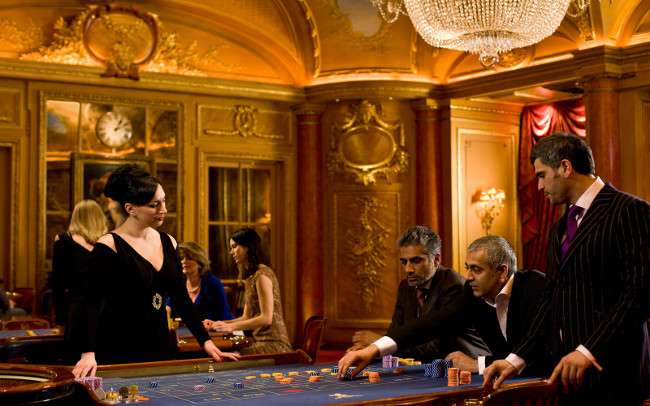
Casino activities have long been connected with the rush of chance and the anticipation of luck. Many people arrive at a casino with the belief that their success is contingent solely on chance occurrences. However, a deeper exploration reveals that these games encompass much more than just the aspect of luck. Understanding the mechanics, tactics, and human psychology behind casino games can greatly enhance the experience and improve one’s chances of success.
Beyond the alluring sounds of revolving wheels and dice being cast, casino games involve a complex mix of expertise, methodology, and judgment. Whether you are participating in blackjack, poker, or even baccarat, knowing the strategies can significantly influence the conclusion of the game. Moreover, the mindset of the players and understanding the probabilities behind each game can shift the equilibrium of success away from mere fortune. By acknowledging these layers, players can appreciate casino games as a mixture of fun and minigame, transforming their approach from one of passivity to one of active engagement.
The Psychological Aspects of Gambler’s Behavior
Grasping the psychology of gambling demonstrates that player behavior is driven by much more than mere luck. The excitement of taking risks, immediate reinforcement, and a potential for achieving large sums can create a intense emotional experience. Many players become captivated by the thrill, which can lead to a cycle of increased betting and risk-taking, often fueled by a hopeful hopefulness that colors their views of success probabilities.
An additional crucial element in the psychology of casino games is the illusion of control. Numerous players feel that their choices, such as the selection of games or wagering strategies, can significantly affect the outcome. Such a belief can enhance their engagement and enjoyment, but it also contributes to persistent gambling behavior, as players often underestimate the role of randomness within the games. The thrill derived from making choices gives players a sense of involvement, which can be deceptive in terms of understanding the true odds involved.
Additionally, the environment of the casino plays a crucial role in shaping a gambler’s experience. Factors like lighting, sounds, and the presence of fellow gamblers create a stimulating atmosphere that enhances the thrill of the game. This carefully designed environment can lead gamblers to lose track of time and money spent, as they become enveloped in a sensory experience that heightens their affective investment. Identifying these psychological dynamics is essential for understanding why casino games entice players and continue to them coming back for more.
Expertise vs. Chance in Casino Games
In the realm of casino games, the discussion between skill and luck is a prominent one. Many players think that fortune is the predominant factor, especially in games like slot machines where outcomes are random. However, there are activities that evidently illustrate the significance of expertise, such as poker and blackjack, where players can apply tactics and decisions that affect their overall success. Understanding the mechanics and intricacies of each activity can greatly affect a player’s outcome and success.
The importance of skill becomes clear when considering the various strategies accessible to players. In games like poker, for example, players must read their opponents, assess probabilities, and make informed decisions based on their hand and the community cards. This depth of strategy showcases how skilled players can consistently surpass novices, proving that success is not solely based on luck but rather on the application of knowledge and expertise. Similarly, in 21, players can use strategies like counting cards to gain an edge over the house, further showing the significance of skill.
On the other hand, luck cannot be completely overlooked in any casino game. While skill can improve a player’s odds of winning, unpredictable results still play a significant role. Even the best tactics can fail due to the arbitrary character of card draws or spins. This interplay between expertise and chance creates a lively gaming environment where players must adapt and react to random events while also utilizing their skills. Ultimately, successful casino gaming is a blend of both elements, contributing to the complexity and thrill of the gameplay.
Methods for Winning
To triumph in gaming, players must understand the significance of creating a plan tailored to the specific title they are playing. Each game has its unique set of regulations, chances, and nuances that demand a cautious method. For case, in titles like poker, players can use techniques such as statistical tracking to make better decisions and improve their chances of winning. Understanding the likelihoods and payouts associated with every title can enable players to make wiser choices and improve their general gaming experience.
Bankroll management is an additional essential strategy that cannot be missed. Players should establish a financial limit for their gaming sessions and commit to it. This guarantees that they do not exceed and helps establish a level of control over their gambling habits. Choosing in advance what to stake and the right moment to leave can avoid emotional decisions that frequently cause significant losses. Effective bankroll management enables players to appreciate gambling without the fear of overextending financially. 99win
Lastly, learning from experience and watching other players can provide insightful understanding. Many successful players invest time evaluating not only their personal play but also that of fellow players. This observation can uncover new methods and techniques, ultimately resulting in better judgments. Engaging in self-reflection after gaming sessions helps players identify what was effective and what didn’t, allowing them to refine their strategies over time. By combining knowledge, focus, and awareness, players can increase their odds of winning in gaming.
